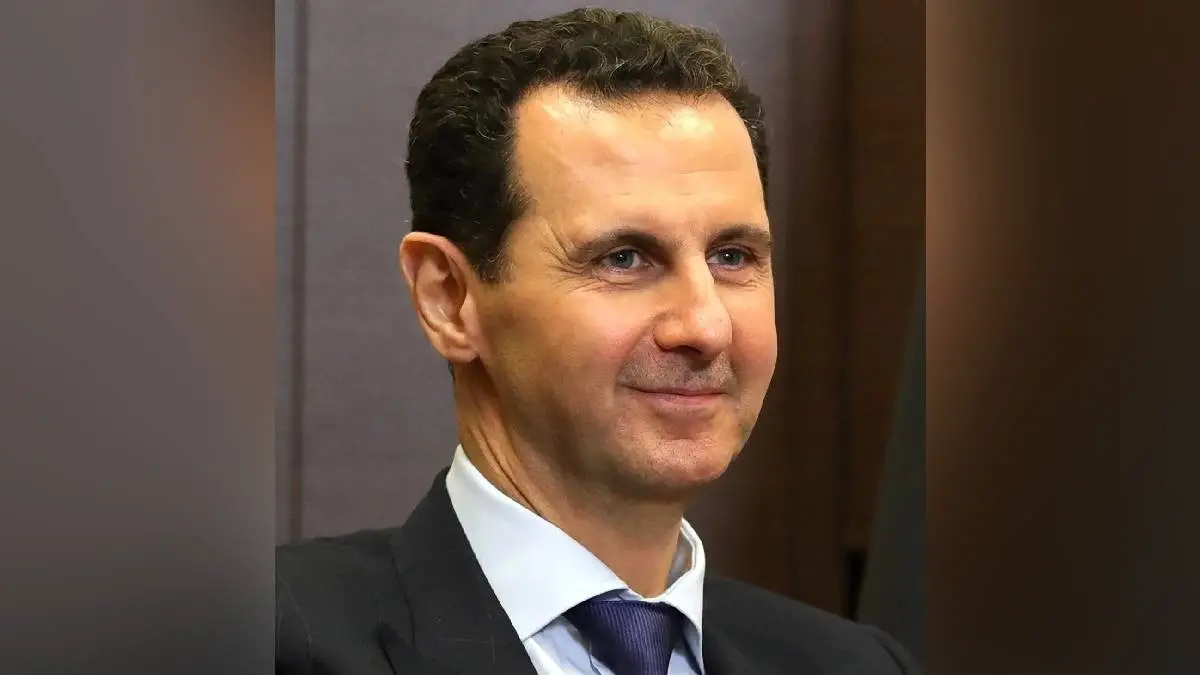Syrian President Bashar al-Assad has fled the country to Russia. Russian President Vladimir Putin has given political asylum to Assad and his family. Earlier there was speculation that Assad’s plane had lost radar contact and there was a possibility of the plane crashing, but now it has been confirmed that Bashar al-Assad has reached Russia. On the other hand, the army confirmed that Assad has left the country and said that the President’s power has ended.
There was a fight for control between rebel groups and the army in Syria for the last 11 days. Rebel fighters also captured the capital Damascus on Sunday and are celebrating the victory by firing in the streets.
Information has been received from the flight tracker that Assad’s plane has reached Moscow after taking off from Latakia, Syria. According to data from the Flightradar website, on Sunday (December 8), a Russian military aircraft took off from Latakia and reached Moscow.
Russia said on Sunday that Syrian President Bashar al-Assad has stepped down and left the country after ordering a peaceful transfer of power. Russia operates the Hmeimim air base in Syria’s Latakia province, which it has used in the past to conduct airstrikes against rebels. On the other hand, the Syrian army confirmed that Assad has left the country and said that the president’s power has ended.
The smell of gunpowder in the air of Syria
The smell of gunpowder is present in the air of Syria, there is heavy firing on the streets, the rebels in Syria have gone out of control. This is the same Syria, where the dreaded terrorist organization ISIS had established its roots, now once again the same threat is looming. On Thursday, Syrian rebels had captured the city of Hama, within just a week the rebels have driven out President Assad’s forces from two major cities of Syria at lightning speed. Rebels celebrated their victory first in Aleppo and then in Hama, the fourth largest city.
Historic victory of the rebels
The rebellion in Syria began in 2011, when the Assad government brutally crushed pro-democracy protests. This conflict gradually turned into a civil war, in which several rebel groups rose up against the Assad government. Ultimately, this 13-year conflict brought down the Assad regime. By capturing Damascus, the rebel groups not only ousted the Assad government but also gave the Syrian people a chance for a new beginning.
Which country said what?
United Nations: “It is now essential to ensure that an inclusive political process begins in Syria,” said Geir Pedersen, the UN special envoy for Syria. He also said that Syria must restore its sovereignty and stability.
Israel: Israel has seen this victory of the rebels from a different perspective. Israeli Minister Amichai Chikli said, “Most of Syria is under the control of organizations affiliated with al-Qaeda and ISIS.” The Israeli army has increased its security in the Golan Heights area.
Germany: German Foreign Minister Annalena Baerbock described the fall of Bashar al-Assad as “a huge relief for the Syrian people.” He also warned that there is a need to prevent the country from falling into the hands of extremist forces.
China: China has watched this development closely. The Chinese Foreign Ministry said, “We are monitoring the situation in Syria and hope that the country will soon regain stability.” They have taken steps to ensure the safety of their citizens and described the embassy as functioning strongly.
Türkiye: Turkish Foreign Minister Hakan Fidan saw this change as the collapse of the Syrian government. He said, “Transfer of power is taking place in Syria, but it has to be ensured that terrorist organizations do not take advantage of it.”
Yemen and other countries: Yemen’s Information Minister Muammar al-Iryani called it a failure of Iran’s expansionist agenda. At the same time, the Philippines appealed to all concerned parties to exercise restraint and avoid violence.
United Arab Emirates: UAE adviser Anwar Gargash said, “Non-state actors should not be allowed to take advantage of the political vacuum.” He described this incident as the result of political failure.
Questions on Syria’s future
Although this incident marks the end of the Assad regime, the challenges for Syria do not end here. The country faces a huge responsibility of maintaining political stability, reviving the war-ravaged economy and repatriating displaced citizens. Apart from this, power-sharing among rebel groups and curbing the influence of extremist organizations are also major challenges.
